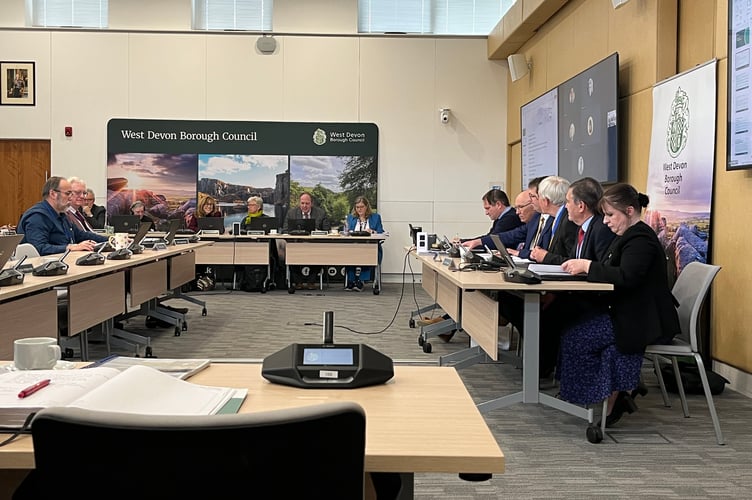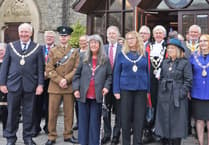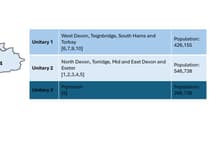West Devon councillors have unanimously supported a new local government model of three unitary authorities for Devon despite it meaning that councillor numbers in the rural borough could drop by up to a third.
Councillors said the 4-5-1 model was better than other options which could mean even less representation on a local level.
Under the local government shake-up district and borough councils together with the county council are being abolished in the county and new larger unitary councils responsible for all local services will take their place.
In its preferred option, West Devon would be part of a Torbay and Southern Devon authority which also includes Teignbridge and the South Hams and the remaining two authorities would be Exeter and Northern Devon, taking in Torridge, North Devon, Mid Devon and East Devon and Plymouth would be a stand alone authority on its present boundaries.
Since 2007 West Devon and South Hams councils have been working together, sharing a chief executive and later a workforce, which has led to savings of £6 million per year.
The move, although controversial at the time, is deemed to be a success story by peers and gives the two authorities some experience of change in order to make efficiencies.
All 11 Devon councils are meeting this week to decide on which proposals for local government reorganisation they will put forward to the government.
The 4-5-1 model has garnered support from council leaders across the county except Exeter where there is a desire to have a stand alone city unitary authority with expanded boundaries.
WDBC leader Cllr Mandy Ewings (Ind, Tavistock South West) said West Devon had a bit more of a gist of where it should be going than the other districts so the amalgamation of local authorities was “not too far off the chart for us”.
Cllr Jeff Moody (Ind, Tavistock North) agreed: “We have proven experience of collaboration. As a partnership with South Hams we have been able to deliver real benefits, this is the next step.”
Councillors said the 4-5-1 model, which is predicted to make savings of £77.1 million from year six and a cumulative saving of £508 million over a decade, was an “excellent piece of work based on solid analysis”.
But they raised concern over a depletion of councillors with Cllr George Dexter (Lib Dem, Okehampton North) fearing that dropping from 481 to 234 members across Devon would “weaken the local voice”. Others said West Devon could end up with as few as 11 councillors compared to the 31 it has now.
Cllr Jan Goffey (Lib Dem, Okehampton South) said she had been lobbied by small parishes who were “not happy” with the thought of being “cast out further into the darkness” and Cllr Patrick Kimber (Con, Hatherleigh) said he was very concerned about vulnerable people who were dependent on face to face relationships getting their voices heard and being supported across boundaries. This is a particular concern when it came to education, social care and provision for children with special educational needs and disabilities (SEND).
The hope is that the government’s proposed neighbourhood committees will give the public the opportunity to take part in local decision making.
Mayor of West Devon Paul Vachon (Ind, Okehampton South) called it a historic moment to be voting on the first local government change in 50 years.





Comments
This article has no comments yet. Be the first to leave a comment.